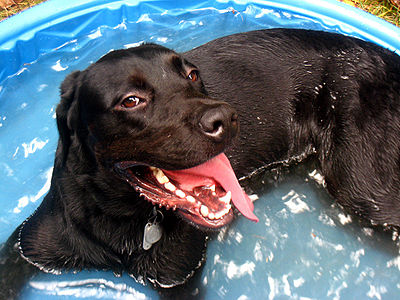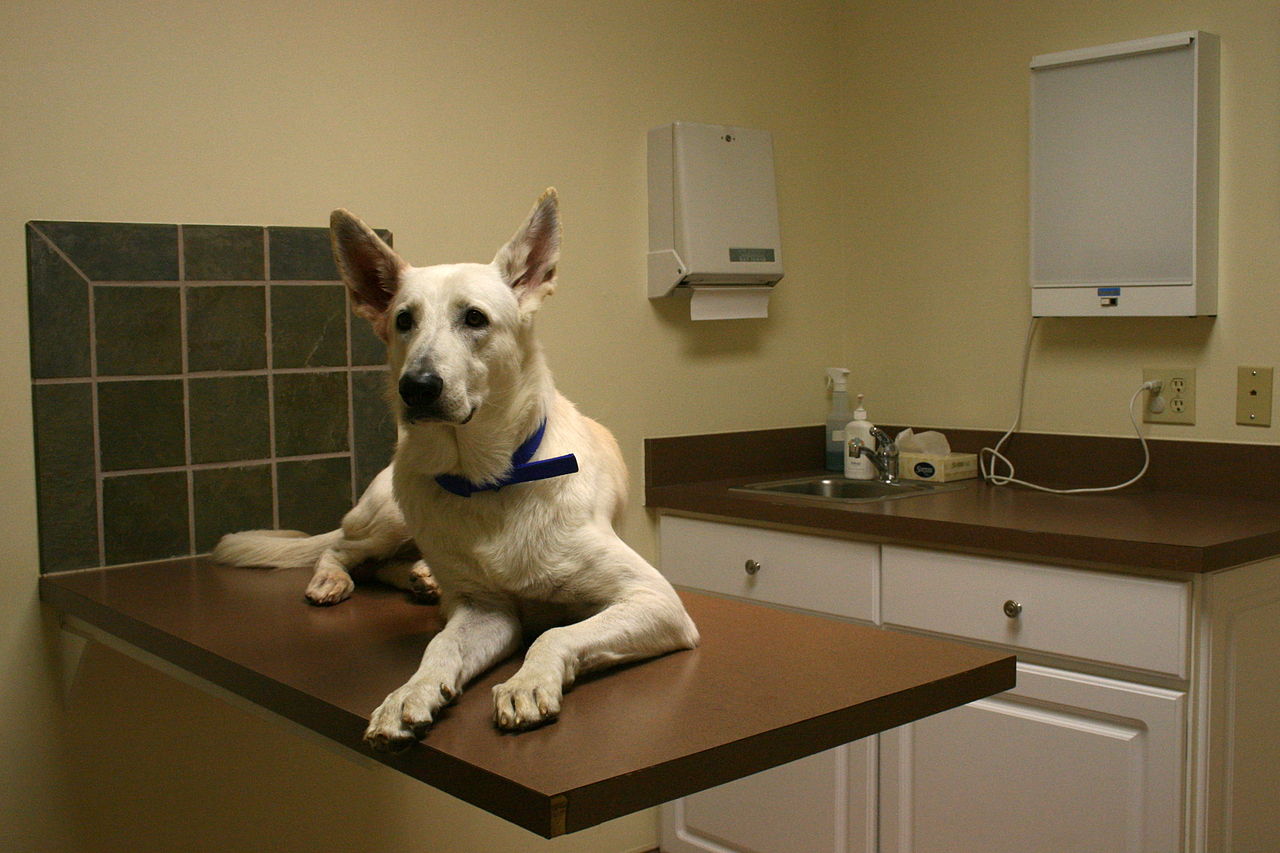
Dogs normally pant, especially when they are excited, after exercise, during hot weather. Panting helps a dog cool down. But if there is a change in your dog’s normal panting – it becomes heavy or prolonged – it could be an indication of something serious.
Obesity can play a role in a dog’s heavy panting. Keeping your dog at a normal weight for size, activity and age is best for overall health.
Heatstroke can be a life-threatening condition to watch for, particularly with brachycephalic (pushed in faces) dogs such as pugs, bulldogs, boxers, Boston terriers. (Please see our article on heatstroke and emergency treatment).
Poisoning can cause a dog to pant heavily. Check for any clues that might indicate consumption of a poisonous substance.
If your dog is anxious or fearful, s/he will breathe hard and pant, sometimes excessively.
There are some illnesses that will cause your dog to pant excessively such as heart and lung problems, Cushing’s Disease, laryngeal paralysis, pneumonia, upper respiratory tumors. If your dog is in pain, check for any injuries. S/he may be anxious, restless, licking at the site of the pain.
Some medications will make your dog pant heavily. If your dog is taking any medication and showing any adverse symptoms, check immediately with your veterinarian.
Older dogs often pant a lot. Dogs with heavy coats should be watched carefully in hot weather.
Dogs are very good at masking pain or illness. You can learn your dog’s normal behavior, including panting, by observation. Any change in normal behavior is time for a veterinary visit.
Your vet will give your dog a complete examination which may include blood tests, urinalysis, fecal exam, heartworm test, x-rays, EKG, blood pressure, tests for laryngeal paralysis, Cushing’s Disease.
Regular yearly or twice yearly examinations at the vet can help keep your dog healthy. Early discovery of any disease or illness can prove to have a more successful outcome.


